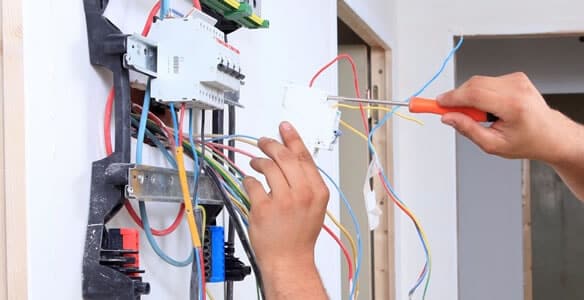Electricity is an essential component of modern life, powering lights, appliances, HVAC systems, TVs, smartphones, computers, and many other devices.
Electricity arrives at the home through a power line or underground conduit. Most homes have three-wire service, or two hot wires and one neutral wire. These wires power conventional 120-volt lights and appliances. Larger appliances are powered by a 240-volt circuit.
An electric meter is mounted at the point where electricity enters the home, and the main panel is typically located right next to or under the meter. The panel is the central distribution point for the electrical circuits that run to lights, receptacles, and appliances throughout the house.
A circuit is a circular journey that begins at a power source, powers the appliance or device along the circuit, and then returns to the power source. If the circuit is interrupted at any point in the path, the circuit will be rendered dead and the device(s) will not receive power.
A modern electrical system may also have subpanels connected to the main panel. Subpanels provide power to areas that have numerous branch circuits or large appliances, such as the kitchen or laundry room. Subpanels are also equipped with a secondary set of circuit breakers.
Common Electrical Problems In The Home
Problems with any of these components could affect the functioning of the entire system.
- Malfunctioning light switches
This problem can be caused by poor wiring, bad circuit, or faulty outlet. A trained electrician should be able to determine the cause and make the necessary repairs.
- Flickering lights
Strong winds may cause flickering lights if the wiring has been frayed. Though this isn’t a code violation, it poses a high level of risk since it can start a fire.
- Tripping circuit breakers
Simultaneously using too many high power devices can trip circuit breakers. You may need to have an additional circuit installed to address this issue.
- Light bulbs burning out frequently
This can be caused by high wattage, insulation that is too close to the light, poor wiring on circuit and mains, and high wattage on a dimmer switch.
If you’re experiencing any of these electrical issues in the home, call Tucker Hill for professional service.

